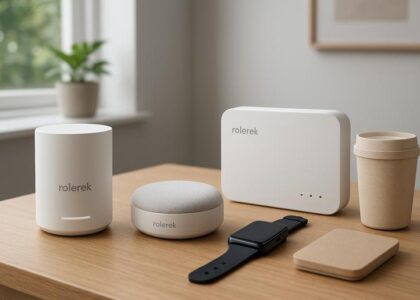Ever thought about buying a car through your business? It sounds like a good deal on the surface, right? You get to drive a sleek car that represents your company while potentially saving on taxes. But there’s more to the story than that. Let’s dive into what it means to buy a car through a business, and whether it’s the right move for you.
Why Would You Want to Buy a Car Through Your Business?
Buying a car for your business can make sense for a couple of reasons. First, it can help you look more professional—imagine rolling up to client meetings in a brand-new company car! But beyond the image, there’s a real potential for tax savings. Your business might be able to deduct the cost of the car, along with ongoing expenses like fuel, maintenance, and insurance.
But here’s the thing—before you rush off to the dealership, there are a lot of factors to consider, like how you’ll use the car, how much it costs, and whether it’ll be used for personal trips, too. Spoiler alert: It’s not always the best idea to buy a car through your business if you’re mainly going to be using it for personal reasons.
How Does Buying a Car Through a Business Work?
Let’s break this down. When you buy a car through your business, it’s technically a company asset. That means the business owns the car—not you. You’ll still get to drive it, of course, but there are rules, taxes, and paperwork to think about. And oh, there’s definitely tax stuff to consider.
Tax Deductions and Capital Allowances
Here’s the good part: as long as the car is used for business purposes (even if it’s partially used for personal trips), the company can claim tax relief. This is known as a capital allowance, and it basically allows your business to deduct a percentage of the car’s value from its taxable profits. The percentage you can deduct depends on the car’s CO2 emissions, and if you’re buying an electric vehicle, you can get some pretty sweet tax relief.
- For electric cars: 100% of the cost can be deducted in the first year.
- Low CO2 emission vehicles: 18% of the car’s value can be deducted per year.
- High CO2 emission vehicles: You’re only looking at 6% per year.
But wait, what about VAT?
If your company is VAT-registered, and you’re only using the car for business purposes, you can claim back 100% of the VAT on the purchase price. But, and it’s a big “but,” if you’re also using it for personal trips (which, let’s be real, most of us do), then you can only reclaim 50% of the VAT. So, don’t expect to write off the entire thing unless you plan on never using the car for anything other than business.
The Hidden Costs of Personal Use
Here’s where things get tricky. Using your business car for personal trips? Yeah, that’s going to cost you. When a company car is used personally—say, for school runs, trips to the grocery store, or weekend getaways—you get hit with what’s known as a Benefit in Kind (BIK) tax. Essentially, HMRC sees this as a perk and taxes you for it.
The BIK tax is calculated based on the car’s list price and its CO2 emissions. For example, a high-emission, luxury car is going to cost you a lot more in tax than a modest, low-emission vehicle.
Let’s do some quick math:
Say you bought a car with a list price of £30,000 and CO2 emissions of 120g/km. The BIK percentage for this type of car might be 30%. So, you’d be taxed on 30% of the car’s value, which is £9,000. If you’re a higher-rate taxpayer, that could mean paying 40% tax on the £9,000, which equals £3,600. Ouch!
So, while it might be tempting to get a fancy car through your business, don’t forget the BIK tax. It can really add up!
Leasing vs. Buying a Car for Your Business
Not sure whether to lease or buy? Let’s talk about that because it’s a decision that’ll affect your finances in more ways than one.
- Buying a car: When you buy a car outright, you can claim capital allowances (as we discussed earlier). You’ll own the car, and after the loan or finance agreement is paid off, it’s yours to keep. However, if you’re looking for flexibility, buying might not be the best route.
- Leasing a car: If you go the leasing route, your business can claim the monthly lease payments as a tax-deductible expense. But here’s the catch—if the car’s CO2 emissions are over 50g/km, 15% of the lease payment won’t be tax-deductible. So, it’s still best to go for a low-emission vehicle. And since you don’t own the car, you won’t be able to claim capital allowances.
There’s a cool bonus with leasing though: you don’t have to worry about depreciation (the car losing value over time), since you’ll return it at the end of the lease term and can trade up to a new model without the hassle of selling it.
What About Vans and Motorcycles?
If you’re thinking about buying a van or motorcycle through your business instead of a car, the rules change a bit.
Vans: Vans can actually be a tax goldmine for businesses. They qualify for 100% tax relief under the Annual Investment Allowance (AIA), which means you can deduct the full cost of the van from your business profits in the year of purchase. Plus, if you use the van for personal trips but it’s considered “insignificant” (like stopping at the store on your way home from work), you might not get hit with the same BIK taxes that you would with a car.
Motorcycles: Motorcycles also get the 100% allowance under the AIA, and they’re treated like vans for tax purposes. So, if you’re a motorcycle fan, buying one through your business could be a smart, tax-savvy move.
Additional Costs You Need to Think About
Before you sign on the dotted line, there are a few more things to consider:
- Insurance: Your business will need to cover the cost of insuring the car, and this can sometimes be more expensive for company cars.
- Fuel costs: If the company is paying for your fuel, this could trigger an additional fuel benefit charge, which, you guessed it, is taxable.
- National Insurance Contributions: Your business will also need to pay National Insurance on the value of any benefits in kind. So, there’s that.
The Bottom Line: Should You Do It?
So, is buying a car through your business the right move? Well, it depends. If you’re going to use the car primarily for business and want to take advantage of tax breaks like capital allowances, it could be a smart move. But if the car is mostly for personal use, you could end up paying more in taxes than you’d save.
And let’s not forget, there’s always the mileage allowance option. If you’re using your own car for business purposes, your company can reimburse you at the HMRC-approved rate of 45p per mile for the first 10,000 miles. This could be simpler and more cost-effective, especially if your business mileage is high.
In the end, the decision to buy a car through your business isn’t a one-size-fits-all answer. It’s worth talking to a tax advisor who can help you figure out what’s best for your specific situation. But hopefully, now you’ve got a clearer picture of what’s involved.










